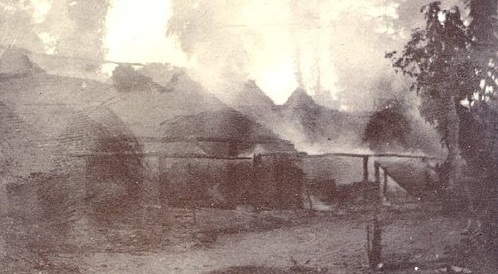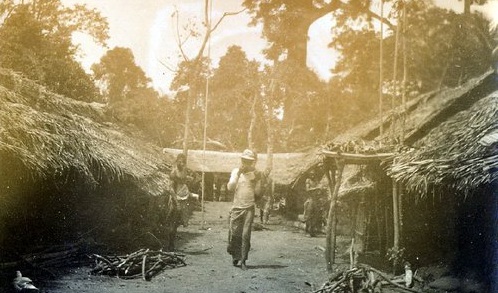
Aro War describes the series of battles between December 1901 and March 1902 in which the Aro tribe of the Igbo nation in eastern Nigeria were subdued by imperial British power. Aro people were in the mid 19th Century known as middle men who carried large quantities of trade goods from Old Calabar to the interior. The Aro War was purposed for the abolishment of slave trade to which Aro people were tenaciously attached and the eradication of the superstitious and fraudulent Long Juju which by its evils stood in the way of modern governance. Also, the battles were designed to open up the Igbo country further to civilization and trade, especially after the exile of the powerful Jaja of Opobo who blocked trade from flowing hinterland. Although the oracle at Aro had long been asserted against modern judicial system, tension did not really begin till 1896 when a British party to Aro territory were repulsed with a native orator advising the whiteman to return to where he came from.
Having obtained George Taubman Goldie’s favorable opinion late in 1899, Sir Ralph Moore, the colonial High Commissioner had begun a process to wage war against the nineteen Aro towns and other non-Aro tribes which might join them in solidarity. Action was delayed for the shortage of men, and Lugard’s inability to provide the numbers that were needed in the plan for war, which was well known to the Aro people. By the month of July of subsequent year, military operation had been approved for the dry season.
An initial encounter between natives and imperial soldiers was recorded for 29 November at Esu Itu when a gun boat was deployed by the British side in routing Aro advance attackers. Arochukwu, capital of the Aro tribal lands and villages fell in 24 December. There remained however an army of native fighters still willing to engage. On Christmas day, 1901, a unit of native fighters attacked from the north with the hope that their comrades will regroup in time and join. Fighting continued till 28 December when the Long Juju oracle, a major target in the conflict was blown up with explosives.

To impose their will further south of the Igbo territory, military columns crossed and recrossed towns up to Ibibio land to obtain their submission. Aro people in revenge to what was made of their Juju and their captive chiefs infiltrated many parts of Igboland in the east, making propaganda against the colonial authority, thereby intensifying the struggle of natives against them. Following the Aro War, import of arms and ammunition to natives was prohibited. This, they had done after recovering twenty-five thousand rifles and cap guns, which were destroyed. Although the Aro war was planned to be conclusive, there arose after it, a chain of reactions that was not brought under control until 1919.





















